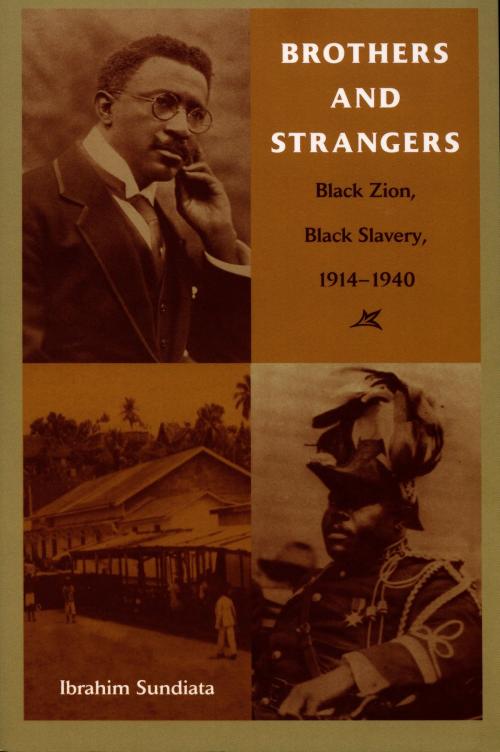Brothers and Strangers
Black Zion, Black Slavery, 1914–1940
Nonfiction, History, Africa, Social & Cultural Studies, Social Science| Author: | Ibrahim Sundiata | ISBN: | 9780822385295 |
| Publisher: | Duke University Press | Publication: | February 3, 2004 |
| Imprint: | Duke University Press Books | Language: | English |
| Author: | Ibrahim Sundiata |
| ISBN: | 9780822385295 |
| Publisher: | Duke University Press |
| Publication: | February 3, 2004 |
| Imprint: | Duke University Press Books |
| Language: | English |
Unprecedented in scope and detail, Brothers and Strangers is a vivid history of how the mythic Africa of the black American imagination ran into the realities of Africa the place. In the 1920s, Marcus Garvey—convinced that freedom from oppression was not possible for blacks in the Americas—led the last great African American emigrationist movement. His U.S.-based Universal Negro Improvement Association worked with the Liberian government to create a homeland for African Americans. Ibrahim Sundiata explores the paradox at the core of this project: Liberia, the chosen destination, was itself racked by class and ethnic divisions and—like other nations in colonial Africa—marred by labor abuse.
In an account based on extensive archival research, including work in the Liberian National Archives, Sundiata explains how Garvey’s plan collapsed when faced with opposition from the Liberian elite, opposition that belied his vision of a unified Black World. In 1930 the League of Nations investigated labor conditions and, damningly, the United States, land of lynching and Jim Crow, accused Liberia of promoting “conditions analogous to slavery.” Subsequently various plans were put forward for a League Mandate or an American administration to put down slavery and “modernize” the country. Threatened with a loss of its independence, the Liberian government turned to its “brothers beyond the sea” for support. A varied group of white and black anti-imperialists, among them W. E. B. Du Bois, took up the country’s cause. In revealing the struggle of conscience that bedeviled many in the black world in the past, Sundiata casts light on a human rights predicament which, he points out, continues in twenty-first-century African nations as disparate as Sudan, Mauritania, and the Ivory Coast.
Unprecedented in scope and detail, Brothers and Strangers is a vivid history of how the mythic Africa of the black American imagination ran into the realities of Africa the place. In the 1920s, Marcus Garvey—convinced that freedom from oppression was not possible for blacks in the Americas—led the last great African American emigrationist movement. His U.S.-based Universal Negro Improvement Association worked with the Liberian government to create a homeland for African Americans. Ibrahim Sundiata explores the paradox at the core of this project: Liberia, the chosen destination, was itself racked by class and ethnic divisions and—like other nations in colonial Africa—marred by labor abuse.
In an account based on extensive archival research, including work in the Liberian National Archives, Sundiata explains how Garvey’s plan collapsed when faced with opposition from the Liberian elite, opposition that belied his vision of a unified Black World. In 1930 the League of Nations investigated labor conditions and, damningly, the United States, land of lynching and Jim Crow, accused Liberia of promoting “conditions analogous to slavery.” Subsequently various plans were put forward for a League Mandate or an American administration to put down slavery and “modernize” the country. Threatened with a loss of its independence, the Liberian government turned to its “brothers beyond the sea” for support. A varied group of white and black anti-imperialists, among them W. E. B. Du Bois, took up the country’s cause. In revealing the struggle of conscience that bedeviled many in the black world in the past, Sundiata casts light on a human rights predicament which, he points out, continues in twenty-first-century African nations as disparate as Sudan, Mauritania, and the Ivory Coast.















